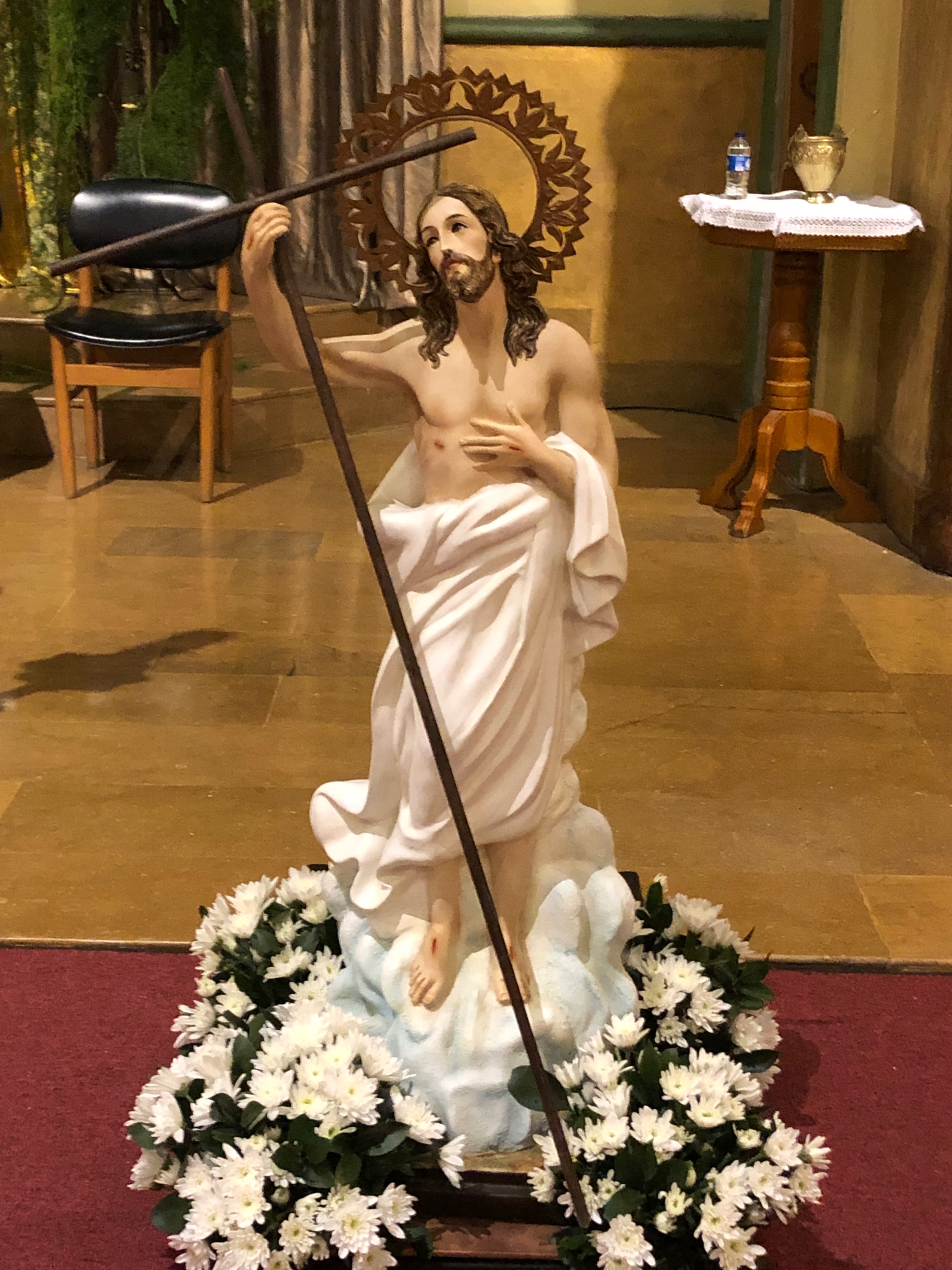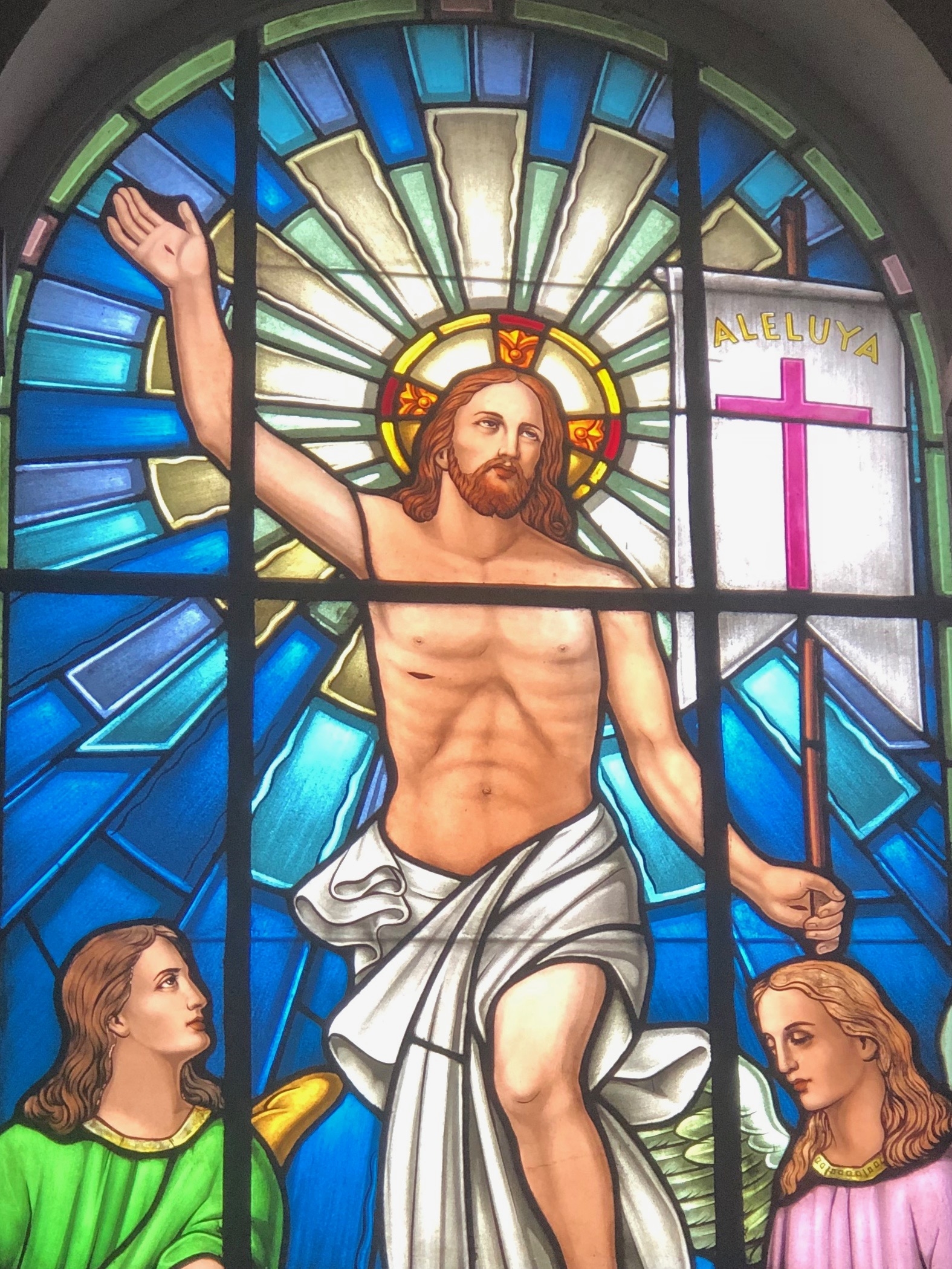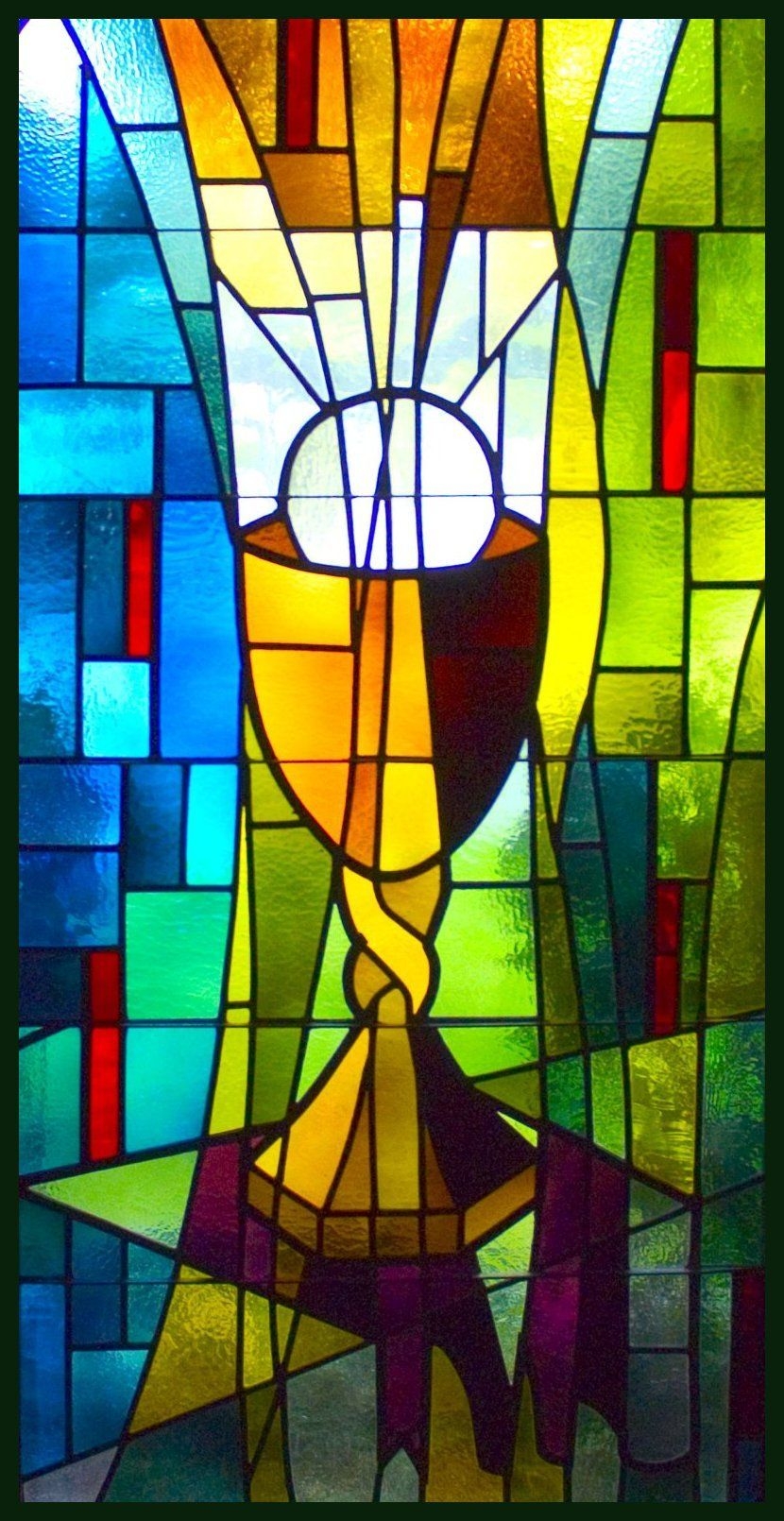These reflections are a result of more than 40 years of ministry as a Roman Catholic priest. Most of these years I spent in the Diocese of Charlotte which covers Western North Carolina. Now I am retired, and live in Medellín, Colombia where I continue to serve as a priest in the Archdiocese of Medellín.

Now a week later his disciples were again inside
and Thomas was with them.
Jesus came, although the doors were locked,
and stood in their midst and said,
“Peace be with you.”
Then he said to Thomas,
“Put your finger here and see my hands,
and bring your hand and put it into my side,
and do not be unbelieving, but believe.”
Thomas answered and said to him,
“My Lord and my God!”
Jesus said to him,
“Have you come to believe
because you have seen me?
Blessed are those who have not seen
and have believed.”
(Jn 20:26-29)
Everyone seems to think that Thomas actually touched the Risen Lord . . . but the gospel doesn’t say that at all. In response to what Jesus says to him, Thomas gives the highest confession in all the New Testament, “My Lord and my God!”

On entering the tomb they saw a young man sitting on the right side, clothed in a white robe, and they were utterly amazed. He said to them, “Do not be amazed! You seek Jesus of Nazareth, the crucified. He has been raised; he is not here. Behold, the place where they laid him. But go and tell his disciples and Peter, ‘He is going before you to Galilee; there you will see him, as he told you.’” Then they went out and fled from the tomb, seized with trembling and bewilderment. They said nothing to anyone, for they were afraid.
(Mk 16:5-8)
Mark’s gospel ends with that remarkable statement that the women “said nothing to anyone, for they were afraid” (Mk 16:8). The gospel writer was perhaps a little too smart for the audience. The gospel writer intends that WE, the hearers of the gospel, should be the ones to go and tell the leadership the good news that “he has been raised.” Unfortunately, the church misunderstood the gospel writer’s intention and was never satisfied with the ending. So through the years various “endings” to the gospel have been added. But these ”endings” rob the gospel of its punch. Because the women were told to go and tell the disciples and Peter . . . but they didn’t because they were afraid. And so the proclamation of the Good News is up to us. And just who is this “young man” clothed in a “white robed?” Perhaps he has something to do with the young man who followed Jesus and that they tried to seize in the garden "wearing nothing but a linen cloth about his body. They seized him, but he left the cloth behind and ran off naked" (Mk 14:51-52). Obviously, the young man is not an angel . . . he must be one of the recently baptized!”

When they climbed out on shore,
they saw a charcoal fire with fish on it and bread.
Jesus said to them,
“Bring some of the fish you just caught.”
So Simon Peter went over
and dragged the net ashore
full of one hundred fifty-three large fish.
Even though there were so many,
the net was not torn.
Jesus said to them,
“Come, have breakfast.”
And none of the disciples dared to ask him,
“Who are you?”
because they realized it was the Lord.
Jesus came over and took the bread
and gave it to them,
and in like manner the fish.
(Jn 21:9-14)
Breakfast by the Sea is one of my favorite Resurrection appearance stories. It’s an extra chapter that’s been added to the Fourth Gospel. And it is definitely Eucharistic . . . recalling the loaves and fishes story of the Gospel. But how tender the invitation . . . “Come, have breakfast.”
All those early morning Eucharists in the church, and it was the Risen Lord inviting us: “Come, have breakfast.”

And he said to them,
“Thus it is written that the Christ would suffer
and rise from the dead on the third day
and that repentance, for the forgiveness of sins,
would be preached in his name
to all the nations, beginning from Jerusalem.
You are witnesses of these things.”
(Lk 24:46-48)
We are witnesses of all that Jesus said and did for our salvation. We are witnesses of all these things that have happened as this pandemic continues. But we will have a message of hope and salvation preached in His name to all the nations.
Christ is risen!
He is risen indeed!!
Alleluia, alleluia!!!

And it happened that,
while he was with them at table,
he took bread, said the blessing,
broke it, and gave it to them.
With that their eyes were opened
and they recognized him,
but he vanished from their sight.
Then they said to each other,
“Were not our hearts burning within us
while he spoke to us on the way
and opened the Scriptures to us?”
So they set out at once
and returned to Jerusalem
where they found gathered together
the Eleven and those with them who were saying,
“The Lord has truly been raised
and has appeared to Simon!”
Then the two recounted
what had taken place on the way
and how he was made known to them
in the breaking of the bread.
(Lk 24:28-35)
We still know him in the “breaking of the bread.” It is the Risen Lord that speaks the words of Everlasting Life to us as He walks with us on the way.



